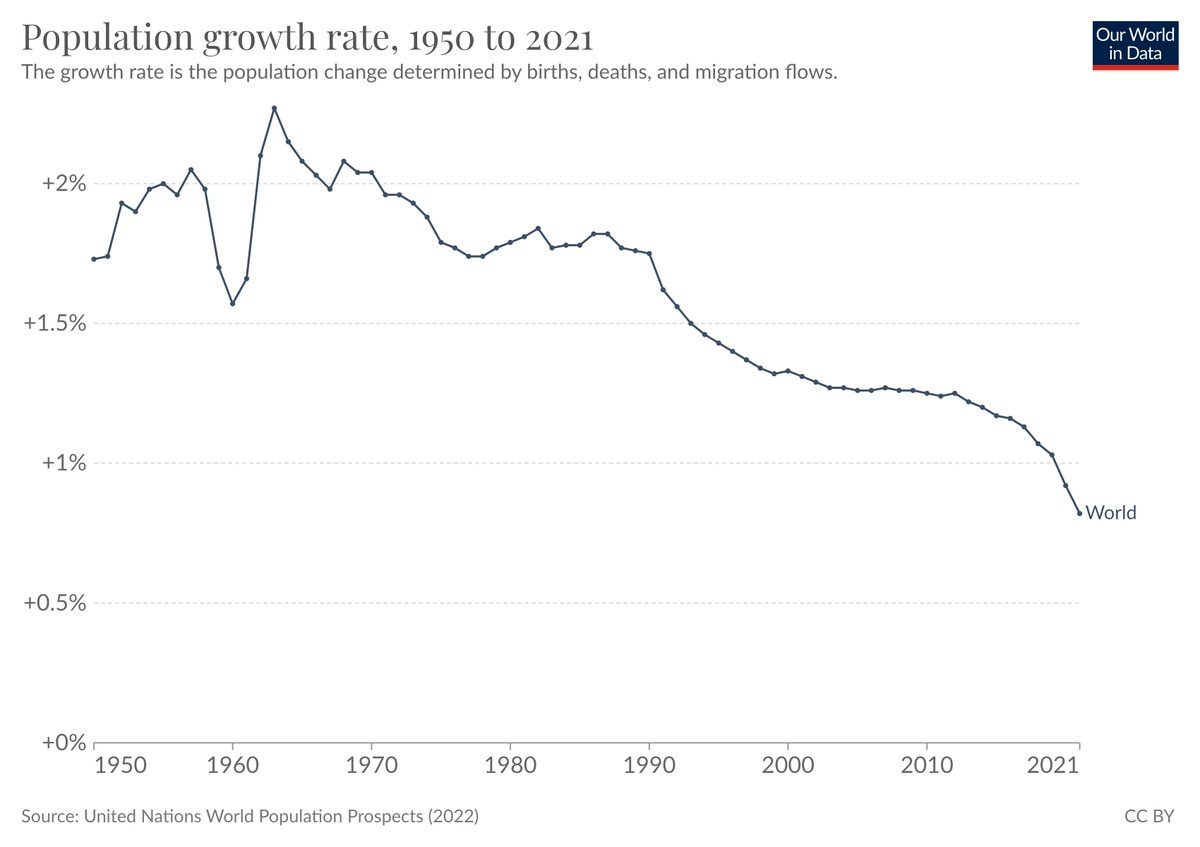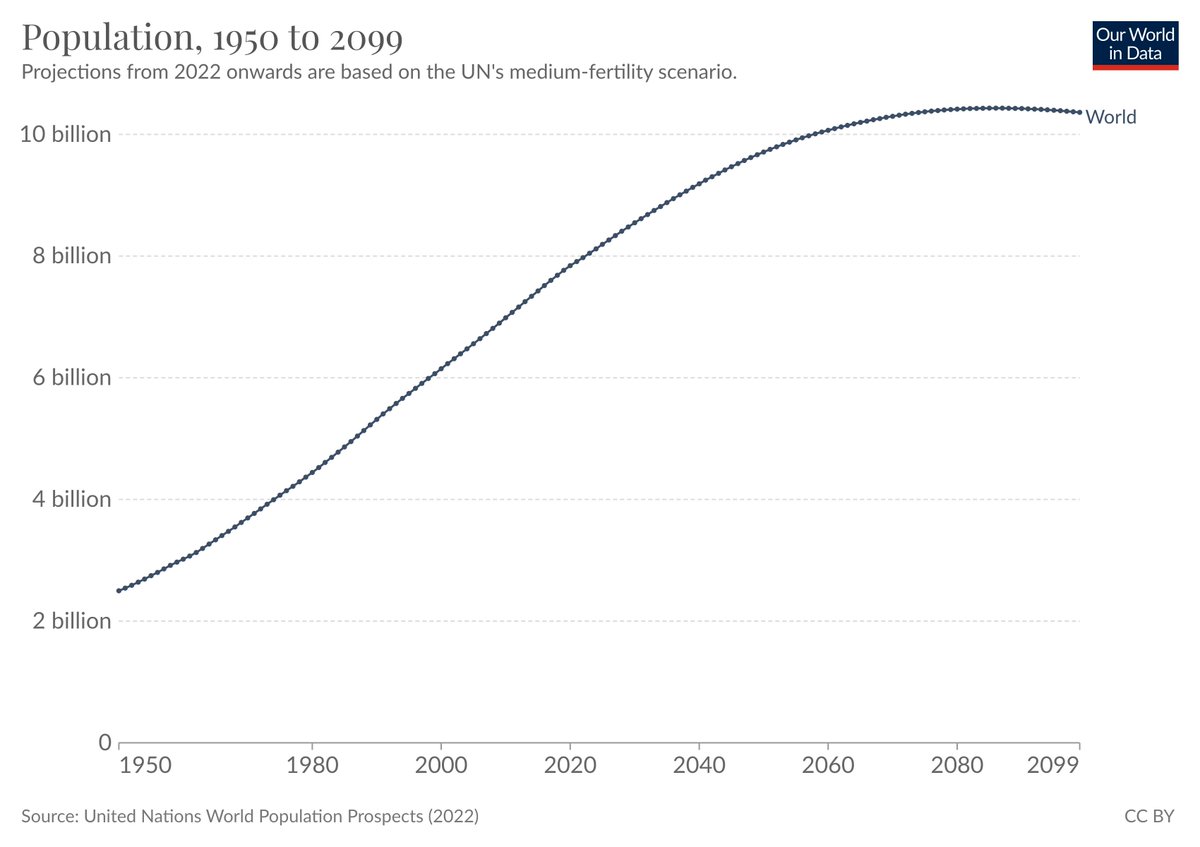
It's #WorldPopulationDay and the UN has just released its new World Population Prospects for 2022.
At @OurWorldInData we've built a new population data explorer for you to explore it all: ourworldindata.org/explorers/popu…
🧵👇A thread with some of the highlights:
At @OurWorldInData we've built a new population data explorer for you to explore it all: ourworldindata.org/explorers/popu…
🧵👇A thread with some of the highlights:

@OurWorldInData The UN projects that the world will pass 8 billion by November this year.
However, population growth rates are slowing significantly, and have dipped below 1% in the last few years.
1/
However, population growth rates are slowing significantly, and have dipped below 1% in the last few years.
1/

@OurWorldInData In its medium fertility scenario, the UN now projects that the world will hit peak population in 2080 at 10.4 billion people.
In its previous release, growth continued to 10.8 billion and did not peak before 2100.
2/
In its previous release, growth continued to 10.8 billion and did not peak before 2100.
2/

@OurWorldInData The global fertility rate is now around 2.3 births per woman.
This is a fall from 5 births per woman in 1950.
Two-thirds of the world population live in countries where the fertility rate is below 2.1 – the replacement ratio.
3/
This is a fall from 5 births per woman in 1950.
Two-thirds of the world population live in countries where the fertility rate is below 2.1 – the replacement ratio.
3/

@OurWorldInData The UN expects that India will overtake China next year (2023) to become the most populous country in the world.
Its previous release expected this to happen in 2028.
4/
Its previous release expected this to happen in 2028.
4/

@OurWorldInData The new estimates include excess deaths of approximately 15 million across 2020 and 2021 – much higher than the 5.4 million confirmed COVID-19 deaths.
This figure is similar to figures published by the WHO, and a little lower than those from The Economist.
5/
This figure is similar to figures published by the WHO, and a little lower than those from The Economist.
5/

@OurWorldInData You can read these findings in our article here: ourworldindata.org/world-populati…
Thanks to @lucasrodesg, @MarcelGerber9 and @redouad for the great teamwork on this.
Thanks to @lucasrodesg, @MarcelGerber9 and @redouad for the great teamwork on this.
• • •
Missing some Tweet in this thread? You can try to
force a refresh
















